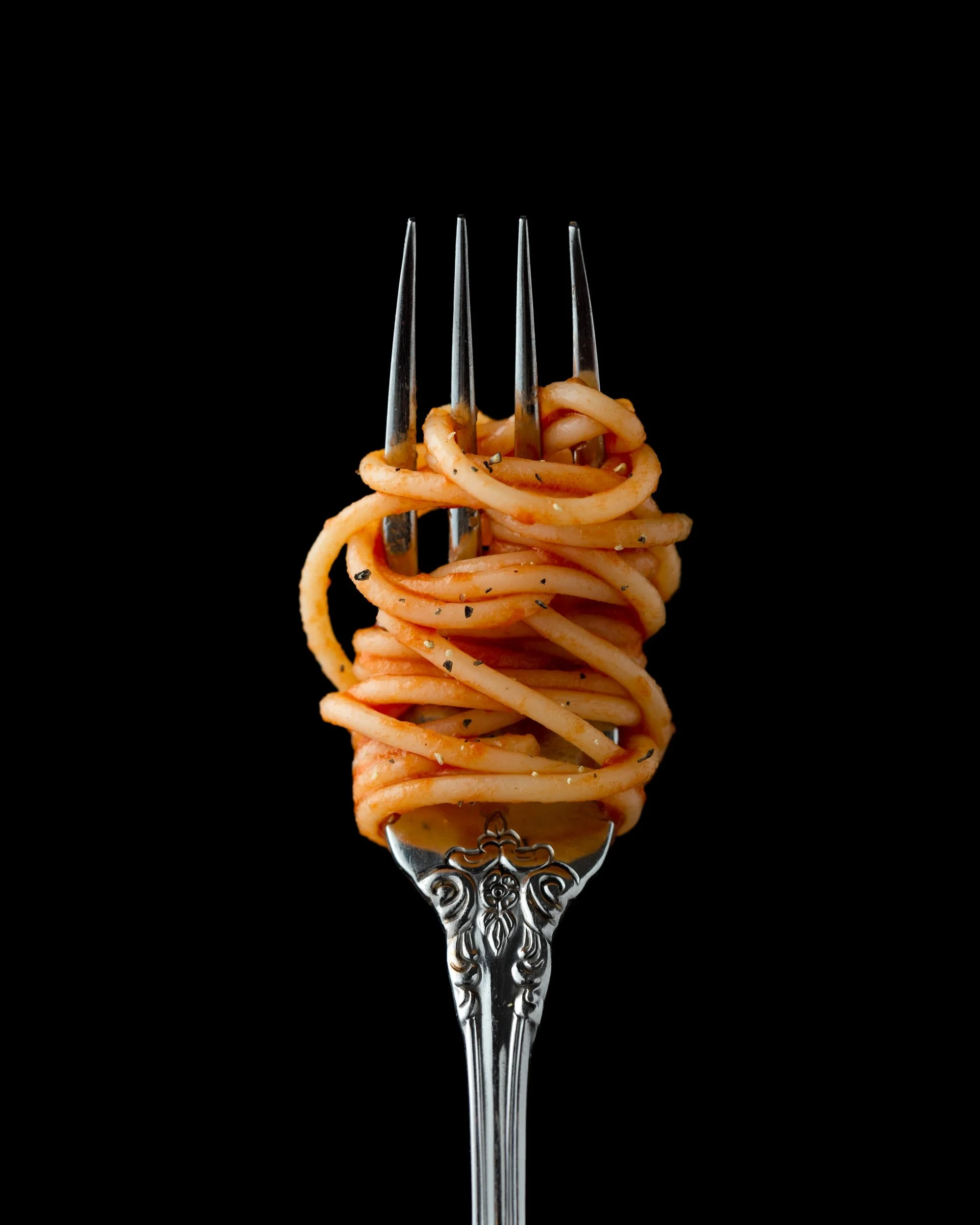Fear Not the Carbs.
Carbs… we love them, we fear them, we can’t resist them. What is the low-down on this macronutrient?
Carbohydrates Simplified:
What are carbohydrates? Carbohydrates are compounds found in living things made up of carbon, hydrogen, and oxygen. They come in different forms including starches, sugars, and fibers.
How does our body use carbohydrates? Typically carbohydrates (starches & sugars) are broken down into glucose through digestion where they then enter our bloodstream. Fiber is an indigestible form of carbohydrate, which passes through the gastrointestinal tract and is utilized by our microbiome in the large intestine.
What foods have carbohydrates in them? Carbohydrates are found in the following food groups: grains & cereals, starchy vegetables (potatoes, corn, peas), fruits & fruit juices, dairy, legumes, snack foods (crackers, chips, pretzels), and desserts. They are found to a lesser degree in non-starchy vegetables (carrots, broccoli, cauliflower).
Why do we need carbohydrates?
Immediate Energy: This one is self explanatory, but carbohydrates provide our body with energy at the molecular level. Once glucose is in our bloodstream, insulin is emitted from pancreas and acts as a “key” to open “locked” cells, which then use the glucose. The cells use a process called cellular respiration to create ATP (the usable form of energy).
Stored Energy: Excess glucose that is not utilized by the body is stored for later use, known as glycogen stores. These stores are primarily located in our muscle tissue and the liver. During intense or prolonged exercise, we utilize our muscles’ glycogen stores to power us through! This allows us to not rely on blood glucose, which must remain quite stable. In a fasting state or in between meals, we will resort to our liver glycogen stores for energy and to keep our blood glucose within normal range.
Brain Function: Did you know that glucose is our brain’s preferred energy source? In fact, decreased carbohydrate intake can lead to poor attention and cognitive function.
Emotional Health: The absence of carbohydrates over long periods of time can stop the pathway of tryptophan entering the brain to create serotonin. A.K.A. Low carb diet = lower serotonin levels. Serotonin is important for mood stabilization, regular sleep patterns, and can actually help suppress appetite.
Hormonal Health: Carbohydrates are needed for your thyroid to function normally. In order to turn an unusable thyroid hormone (T4) to a usable thyroid hormone (T3), we need glucose. Eating too little carbohydrates can lower your thyroid hormones, which is important in our bodies’ metabolism.
Digestive Health: Fiber helps us stay regular! Fiber can either form gel like substances in the presence of water or can add bulk to stools. This can help both create more solid stools in times of diarrhea or move everything through when you just can’t go!
Microbiome Health: Fiber feeds our microbiome. Due to being minimally digested, fiber reaches the large intestine fairly intact. Here is where our microbiome (our gut bacteria) lives. The bacteria here utilize fiber as fuel and create beneficial byproducts. Some of these by-products are called short chain fatty acids, which promote anti-inflammation, the integrity of our gut lining (bye-bye leaky gut), and mucus production to protect our intestinal cells.
Heart Health: Soluble fiber is a type of fiber that has been shown to decrease LDL cholesterol (the bad kind). Foods high in soluble fibers include oats and beans.
During Stress: Ever heard that cortisol levels increase glucose? Yes, it is true… but do you know why? This is a safety mechanism to provide immediate energy in a highly stressful situation. During fight-or-flight, insulin levels drop and the hormones glucagon, adrenaline, and cortisol rise working together to release more glucose into the bloodstream. If you have ever had a real life threat, you are probably glad that this system works the way it does.
So why are people scared of them?
Diet Culture. Plain and simple, diet culture. Ever heard of the low fat craze of the 80’s & 90’s? Well, this is exactly that, but a new villain! It isn’t a new trick… just a new viewpoint. We realized that fat does NOT in fact make us fat. It is about reduction in calories. Yes, weight loss may incur from removing an entire food group, because you reduce calorie intake. As a culture, we have an obsession with losing weight, and today this has taken the form of the “health craze.” Obsessing over a whole food diet (lean meats, vegetables, fruits), with little amounts of processed foods. We claim to want to be as healthy as possible, but beyond that facade is a wish to be in thinner bodies. Otherwise, we would appreciate some of our foods being processed. Did you know that fortified flour was created to reduce vitamin deficiencies? Of those added was folic acid, a vitamin that prevents neural tube defect in babies. Eating processed foods, like cereal and bread can help people get adequate vitamins & minerals!
Misconception & Miseducation. Many people see diseases like diabetes or heart disease and put the blame on carbohydrates. First of all, lifestyle choices cannot be the only faulty party here. Genes play an enormous role in metabolic diseases. Greater than 50% of diabetes is due to hereditary factors. Secondly, of the lifestyle factors, food is a just a piece of the puzzle. Stress, physical inactivity, sedentary jobs, an sleep patterns contribute as well. Lastly, when it comes to the food choices, it is not just about over consumption of carbs. Saturated fat intake, eating past fullness cues, not eating consistently, not balancing your carbohydrates, not chooses nutrient dense carbohydrates, inadequate fiber intake (which you have learned is a carbohydrate), can all lead to these issues as well!
My Take Away.
Carbohydrates are friends not foes. We need carbohydrates to function on all cylinders. This includes mental, emotional, & physical health. Fueling ourselves adequately with good quality carbohydrates allows us to be satisfied from our meals. This is more than just the taste, it is physiology! Our bodies are happy when we provide what they truly desire.
Low carbohydrate diets will lead to a poor relationship & an increased cravings for certain foods. When we decrease essential nutrients, like carbohydrates, our bodies kick into overdrive by increasing hunger hormones and decreasing your satiety hormone (leptin). Eventually, this diet pattern will backfire. Additionally, labeling a specific food as “bad” or “unhealthy” actually creates a pathway in our brain that intensifies our desire for those foods.
Unless we have glucose utilization issues (e.g. diabetes), our bodies know what to do with carbohydrates. You may find these days that many social media influencers obsess over “glucose stabilization.” Sure, it is a good idea to balance carbohydrates with protein & choose fiber rich carbohydrate sources. That said, if you eat a peach or crackers one day without a protein or fat source, it will be okay! It is the goal or our internal systems to be in homeostasis. This is why you can eat citrus and not die from the acidity. Our body immediately brings our pH back to (a very narrow) normal range. The same goes with blood sugar…. our pancreas produces insulin that helps store or use glucose immediately.
If you need assistance reintroducing carbohydrates into your diet, creating a healthy relationship with food, or understanding other nutritional nuances. I got you! Schedule an appointment here.


